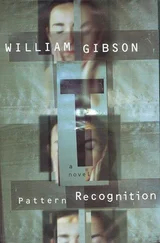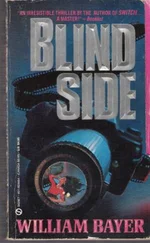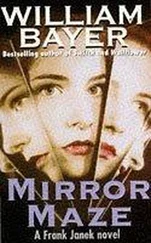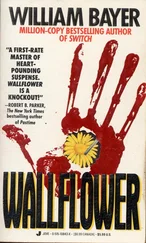WIlliam Bayer - Pattern crimes
Здесь есть возможность читать онлайн «WIlliam Bayer - Pattern crimes» весь текст электронной книги совершенно бесплатно (целиком полную версию без сокращений). В некоторых случаях можно слушать аудио, скачать через торрент в формате fb2 и присутствует краткое содержание. Жанр: Полицейский детектив, на английском языке. Описание произведения, (предисловие) а так же отзывы посетителей доступны на портале библиотеки ЛибКат.
- Название:Pattern crimes
- Автор:
- Жанр:
- Год:неизвестен
- ISBN:нет данных
- Рейтинг книги:3 / 5. Голосов: 1
-
Избранное:Добавить в избранное
- Отзывы:
-
Ваша оценка:
- 60
- 1
- 2
- 3
- 4
- 5
Pattern crimes: краткое содержание, описание и аннотация
Предлагаем к чтению аннотацию, описание, краткое содержание или предисловие (зависит от того, что написал сам автор книги «Pattern crimes»). Если вы не нашли необходимую информацию о книге — напишите в комментариях, мы постараемся отыскать её.
Pattern crimes — читать онлайн бесплатно полную книгу (весь текст) целиком
Ниже представлен текст книги, разбитый по страницам. Система сохранения места последней прочитанной страницы, позволяет с удобством читать онлайн бесплатно книгу «Pattern crimes», без необходимости каждый раз заново искать на чём Вы остановились. Поставьте закладку, и сможете в любой момент перейти на страницу, на которой закончили чтение.
Интервал:
Закладка:
"Hope you don't mind eating in the kitchen, Mr. Boyce. We Russians always speak more candidly in our kitchens."
"I've had the pleasure of being received in many Russian kitchens, Mr. Targov. Little Moscow kitchens mostly. Never one like this."
"A kitchen is a kitchen," Irina said. And then in Russian: "Do you think he'd like it better if it stank of cabbage?" Anna and Rokovsky laughed.
"I do speak Russian."
"Please excuse my wife. She's often rude. And now some questions. How is it you Americans put it? Shoot!'"
"As emigres-"
"Exiles. You see, Mr. Boyce, we were thrown out. Or, to be precise, we were allowed to travel and then, just as we were about to go back, they denounced us and stripped us of our citizenships."
"They insist you made a deal to get out."
Targov laughed. "The KGB peddling trash. Their lies are so transparent, clumsy but dangerous. Very dangerous-don't you agree?"
"They're circulating-"
"I know. They've been showing it around for years. They'll try anything to discredit me, or anyone who dares to criticize. Have you heard their line on Solzhenitsyn? That he betrayed Vitkevich! They offer proof, a transcript. It's so laughable! From 1944!"
"Are you in touch with Solzhenitsyn?"
"Not anymore, but there was a time… His trouble, you see, is he has no charm. They invite him to Harvard, he decides to give them hell-believe me, I'm all for that! But then he botches it, puts on his stone face, thrashes his arms like a Cossack, and harangues them in Russian until they snore. I hope someday they invite me. I'll have a few things to tell them about their great and bountiful West. And maybe they'll listen because I won't make Solzhenitsyn's mistakes. For one thing, I'll address them in English. For another, I'll plunge in the needle where it hurts."
"What are your main criticisms of the West?" Boyce held his pencil poised.
"Moral cowardice. An obsession with money and success. A total misunderstanding of art. The most successful people here, and I include the artists, remind me of the hacks who rule our artists' unions back home."
"Yet you've been very successful here, Mr. Targov. And no one calls you a hack."
"Perhaps I am. That's for others to say. Or perhaps I'm simply bitter. You see, Mr. Boyce, when you're sitting in your freezing hovel in Moscow, unable to work, unable to gain commissions because your style doesn't suit the bureaucrats and their stupid party line, you think: 'In the West they care! They know how we suffer! They're our friends! They're petitioning! For them we must survive!' Then, if you're lucky enough to escape, you discover no one gave a hoot. Not only were people here totally unaware of you, when they do finally meet you they find you tiresome. You're so serious. You complain. You bite the hand that feeds you. Their worst accusation is that you're ideological. Can anything be more boring than that?"
"Do you respect American artists?"
"I respect Noguchi. But as a sculptor I cannot speak ill of sculptors. Painters are a different story." He winked at Boyce. "Who are your painters?"
"Stella. Rauschenburg. Fischl."
"Stella's a decorator. Clever, interesting sometimes, but I don't take him seriously."
"Robert Rauschenburg?"
"A distinguished artist, yet I wonder if he really cares. As for Fischl-" he laughed. "A puppy. Cute."
It was hours before Boyce left. When he did, Targov was exhausted. Such a show he'd put on, so many ripostes. Being alternately cagey, brilliant, supercilious, and profound had used up all his energy. He went to his room, wrapped himself in his quilt, tried to sleep but without success. Later he searched for Anna but she and Rokovsky had gone out for a walk. He wandered through the house, then crossed the grounds to his studio. He hadn't been in it in a week.
Today of all days, he thought, I must enter and try to work.
He unlocked the steel door, entered the vast room. The first thing he saw was Anna's cello. She had spent the morning practicing, had left her instrument on the platform along with her stool and music stand.
Barrels of clay were arranged to one side. Scaffolding stood ready to be assembled. Tools were laid out like a surgeon's before an operation. Maquettes of earlier work sat on stainless steel shelves.
He moved to the big window, the great wall of glass that looked out over the sea. Trees had been cut to open up the view. The weather was closing in. Fog was moving down the coast, would soon conceal the rocks and spume below.
Sergei out. He drops a casual postcard from Vienna. On his way to Israel… Oh God!
He looked at the large photograph of his Chicago crucifix bearing his writhing, defiant Christ. "I love the crucifixion in art," he had told Boyce, "the great ones are so controlled." He had also repeated for the ninetieth time his maxim: "I ask the clay what it wants to be and when it tells me I begin to sculpt." A moment of weakness-he had said it too many times, and now he hated it; he knew it was meaningless and fake.
He picked up the phone, dialed the house, was pleased to find Rokovsky back. "Send her to me in the studio," he told him. Then he stood before the window and watched the fog close in.
She knocked before she entered, a polite young person, though he was horrified at the sweat shirt she wore, black with the name of some ridiculous rock group scrawled in silver across the chest.
"Sasha…" She came to him. He took her in his arms.
"Irina tells me you're leaving."
She nodded. "Tomorrow. I'm going to New York."
"Tired of me?"
"Oh, Sasha."
"The lion is sixty now. Too old. I understand."
"Please."
"I've tried to help you."
"You have, you have."
"The introductions. The concert in Washington with Rostropovich. The top emigre circle-I got you in."
"Yes…"
"But now you want to go."
"I can't stay forever. Besides, Irina hates me."
"She hates everyone."
She broke away from him, shook her head. "You know I must go. They've found me an accompanist. I must play before audiences. Music is my life."
He nodded and turned away. Yes, just as sculpture once was mine…
After they made love he went to the refrigerator, brought out a bottle of Stolichnaya, poured them each a glass. "I've been wondering about you, Anna, whether you're really a Komsomol girl."
"What?" She was shocked. "How can you say a thing like that?"
"Could be," he teased her. "You've found out all my secrets, from me in bed and from Rokovsky too. Yes, I think you are a spy. They set up your 'defection' to confuse me. You were trained to be a femme fatale, then sent here to attach yourself, hold me, drain my vitality, render me impotent. Yes?"
"Oh, Sasha." She laughed. "Not impotent at all." She rose from the daybed and began to dress.
He emptied his glass, turned serious. "There's one secret I haven't told you yet."
"What's that?"
"I did something once."
"What did you do?"
"Named a name, betrayed a friend. You see, it's true, that old lie. I fibbed to Boyce."
"What are you talking about?" She was hooking her bra.
"My best friend… supposedly. Some friend! He was fucking my wife behind my back. I betrayed him, he was sent to the camps, and now after fifteen years he's out, out of the country too. He's a Jew-they're letting him go to Israel. I can't sleep. Have nightmares. Can't work anymore. Haven't felt the clay in my hands in months. I try to forget, want so much to forget. But every morning Irina reminds me. Her vengeance, of course. It keeps her alive."
She came to him, put her arms around him.
"I was an informer, Anna."
"But he betrayed you first."
"No excuse." He pressed his cheek against her hair and wept.
Later he asked her to play for him. 'The Arpeggione.' A last request."
Читать дальшеИнтервал:
Закладка:
Похожие книги на «Pattern crimes»
Представляем Вашему вниманию похожие книги на «Pattern crimes» списком для выбора. Мы отобрали схожую по названию и смыслу литературу в надежде предоставить читателям больше вариантов отыскать новые, интересные, ещё непрочитанные произведения.
Обсуждение, отзывы о книге «Pattern crimes» и просто собственные мнения читателей. Оставьте ваши комментарии, напишите, что Вы думаете о произведении, его смысле или главных героях. Укажите что конкретно понравилось, а что нет, и почему Вы так считаете.












